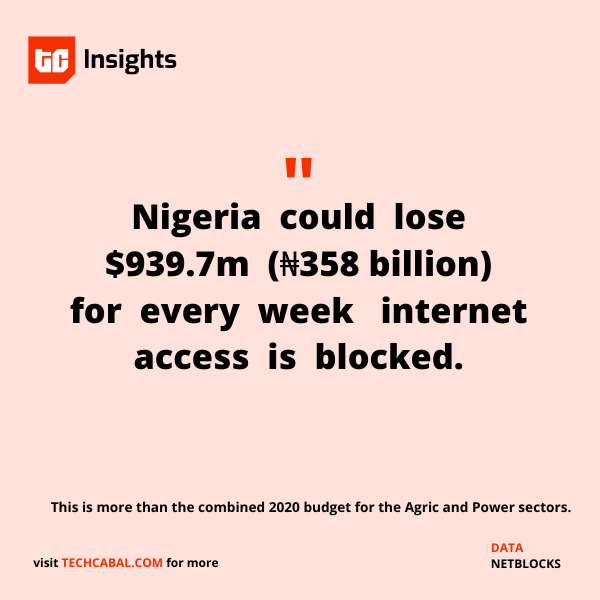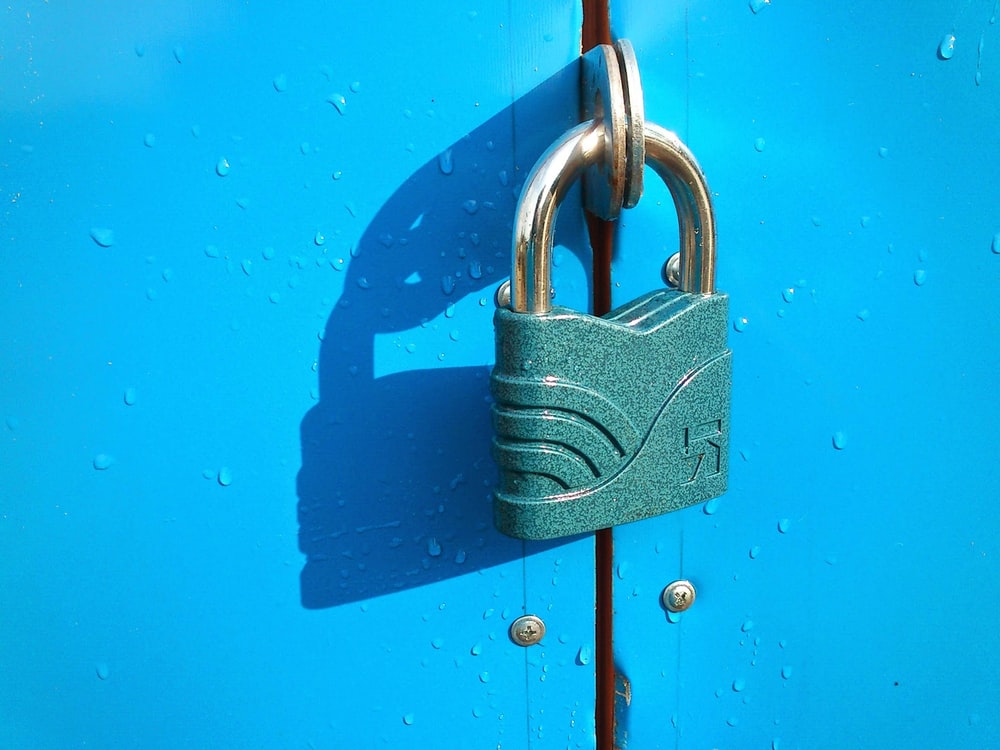On the 17th of January 2017, Sophie, a member of the Google Developer Group in Bamenda, Cameroon was about to register 12 girls for the 2017 Technovation challenge when the internet was cut off. At first, she thought it was a problem in her office but soon discovered that everyone had the same problem. The internet did not come back on for the next 93 days, and the girls lost their chance to compete in the challenge that year.
Internet shutdowns are not unheard of in Africa, or even in the rest of the world – in 2019, there were 122 total disruptions in 21 countries and four regions across the world. They’re not a new thing either – according to a Brookings report, governments have been interfering with internet services since 1995.

Most importantly, these shutdowns are not cheap. In 2019 alone, 18,225 hours (759 days) of internet disruptions cost the global economy a staggering $8.05bn, of which countries in Sub-Saharan Africa lost $2.16bn.
Chad, for instance, lost $125.9m when the government blocked social media access for 4,728 hours (197 days) while Ethiopia lost $56.8m in its fourth consecutive internet shutdown which lasted 346 hours (14 days). The highest costs in 2019 ($1.86bn) were incurred by Sudan when the government shut down the internet for 1,560 hours (65 days).

In Nigeria, there are fears that in order to disrupt the ongoing protests and dilute their impact, the government may shut down the internet. The fears are understandable considering the key role it has played in the protests, from crowdfunding to venue coordination, and most especially, media coverage. If an internet shutdown does happen, it would be the first of its kind in the country.
[A Nigerian internet or social media shutdown? What to know and do]
There are two ways it could happen – a total blackout which would mean an order to Internet Service Providers (ISPs) to block all internet services, or a partial disruption, in which case, ISPs will only restrict access to certain websites and/or applications. A total shutdown is exactly that – total, but there are ways of getting around a partial disruption.
An internet shutdown may however not be a step in the right direction, not just now, but even in the future.
Let’s start with the direct costs.
Netblocks developed a tool to estimate the cost of internet shutdowns for different countries and regions using several development indicators. We checked the numbers for Nigeria and they are not pretty.

One day of internet shutdown in Nigeria could cost the economy $134m (₦51.1bn), and if the shutdown lasts for a week, we could lose $939.7m (₦358bn), which is more than the 2020 budget for the Power (₦135bn) and Agric (₦183bn) sectors combined.
You may think these numbers are outrageous, but are they, really? In 2019, ICT made up 13.04% of Nigeria’s GDP. With no access to the internet, that percentage would suffer if the government decided to shut down the internet for even a week.

13% of Nigeria’s 2019 GDP ($448.1bn) is $58.3bn (₦22.2trn). That’s $159.6m (₦61bn) per day, which means in a week, Nigeria could lose $1.1bn (₦419bn).
Now, ₦358bn doesn’t look so outrageous.
For some extra context, in 2019, Flutterwave, a payment-processing company facilitated $5.4bn worth of transactions. That’s $14.8m (₦5.6bn) per day and $616,600 (₦234.9m) per hour. Imagine losing that because there’s no internet.
The internet is a major driving force behind productivity anywhere in the world. It powers businesses and everyday lives. Indeed, the global digital economy, which was worth $11.5 trillion in 2019, and is set to reach $23 trillion by 2025 is nonexistent without it.
Nigeria, a country where 46.6% of the population is connected to the internet, should be tapping into that, not shutting the door on the deluge of opportunities it presents, not just because we’re in a pandemic that has thrown even the strongest economies off balance, but in order to maximize the potential of Nigeria’s teeming youth population.
Editor’s note: This is a TC Insights data article. TC Insights clarifies the business and human impact of technology and innovation in Africa with research and data. Find out more about our work here. Got a request for us, let us know here.
Correction: An earlier version of this article put the figure Nigeria will lose daily to an internet shutdown as 51 trillion naira, the correct figure is 51 billion naira. It also had 46 billion naira as the 2020 total budget for Health, instead of the capital expenditure budget. The correct 2020 capital expenditure budgetary allocation for the Health sector is 59 billion naira, while the total budgetary allocation is 464 billion naira. The image and the figures used have been updated to reflect the correct total budgetary allocations for the Agric and Power sectors.



















